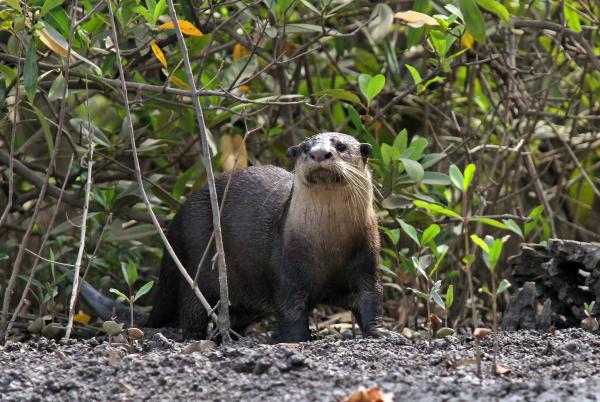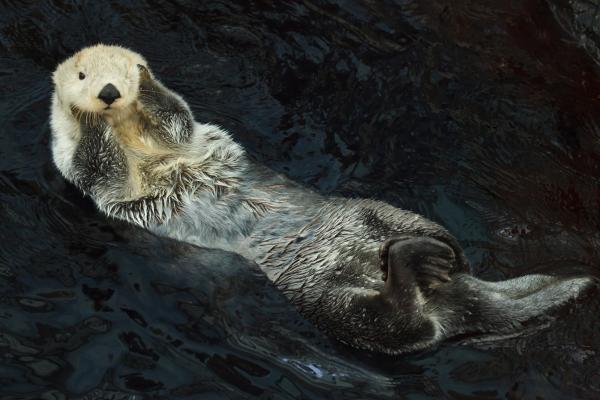Otters are mammals belonging to the Mustelidae family, specifically the Lutrinae subfamily. They have flexible bodies, short legs with webbed feet, and excellent swimming abilities. Otters are predatory animals that build dens for shelter. They inhabit diverse regions worldwide, with species adapted to local environments. This article explores the 12 main types of otters currently known, offering a comprehensive guide to this fascinating animal group.

Measuring 80 to 130 cm in length, this species lives near rivers and some coastal areas but always requires access to freshwater. It is found across Eurasia and northern Africa, making it the most widely distributed otter species.

Found in North America, preferring rivers with dense vegetation. Its diet includes crabs, fish, and occasionally terrestrial mammals. Length ranges from 60 to 100 cm.

Native to tropical South America, it is the largest otter species, measuring 1.5 to 1.7 meters. To sustain its large body, it consumes around 3 kg of fish daily. The giant otter is endangered.

Measuring 100 to 165 cm, it inhabits sub-Saharan wetlands and dense forests. Its diet consists of frogs, fish, and crabs.

The smallest otter species, ranging from 70 to 100 cm, found in India and Southeast Asia's wetlands. It faces extinction threats due to habitat loss from pollution and deforestation.

Living in the cold North Pacific Ocean, it has the densest fur of any animal. It feeds on fish and crustaceans and measures between 1 and 1.5 meters. As a marine mammal, it is one of the smallest compared to huge whales.

The only saltwater otter in South America, found along rocky coasts and occasionally in estuaries of the South Pacific. Unlike other otters, it spends most time on land, diving only to forage. Length is 87 to 110 cm. It is poorly known and threatened by marine pollution, competition from introduced species, and fishing net bycatch.

Characterized by white spots on its neck contrasting with brown fur. It is 55 to 76 cm long and lives in freshwater lakes in sub-Saharan Africa. It is near-threatened due to habitat loss and hunting.

Ranges from Central America (Mexico) to South America (Uruguay), inhabiting various freshwater bodies like rivers, swamps, forests, and savannas that are clear and calm. It is an adaptable species feeding mainly on fish and crustaceans but also mollusks, small mammals, birds, insects, and fruit. It tolerates cooler temperatures and has been found in Andean glacial lakes.

Despite its name, it frequents freshwater, marine, and brackish water ecosystems and also terrestrial habitats. Native to Chile and Argentina, it is threatened by extensive hunting for its fur. Medium-sized, measuring 1 to 1.3 meters.

Found in Southeast Asia, once thought extinct but some populations persist. It faces ongoing threats from habitat loss. Measures 80 to 130 cm and is notable for its fur-covered nose. Often confused with the European otter due to similarity.

Native to India and Southeast Asia, it has smooth, short, shiny fur and a flattened tail. It measures about 1.3 meters and is vulnerable due to pollution, habitat destruction, and hunting.

These 12 otter species display diverse behaviors and habitats worldwide. As vital components of aquatic ecosystems, protecting otters contributes to biodiversity conservation. If you enjoyed this article, you may also be interested in reading about furry animals and types of foxes.
animal tags: Otters
We created this article in conjunction with AI technology, then made sure it was fact-checked and edited by a Animals Top editor.